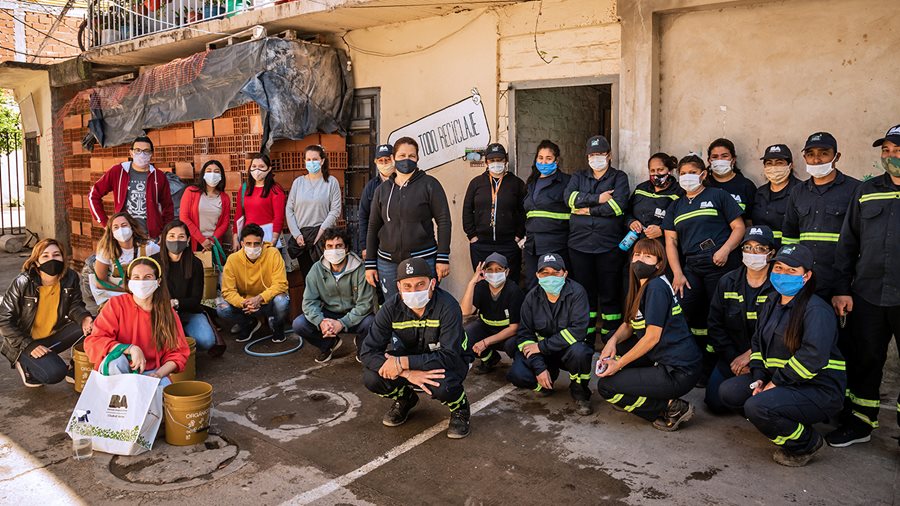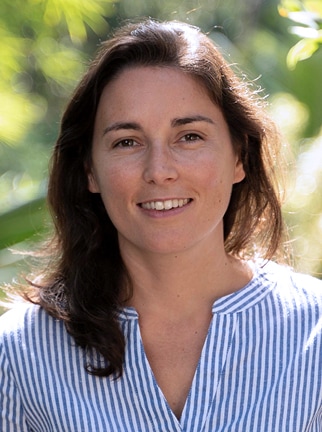Well before the COVID-19 pandemic, the world was confronting an enormous waste problem. Without effective approaches to managing the materials and food we discard, our waste production inevitably becomes a set of health, human development, and environmental challenges. By 2050, global waste volumes are predicted to more than double in low- to middle-income countries. During the pandemic, single-use products and panic buying, accompanied by limited waste collection or recycling efforts, made the waste management challenge even more daunting.
Rethinking Recycling, a non-profit initiative supported by McKinsey, aims to create a globally scalable model to manage waste and help communities rapidly increase the amount of material recycled into productive use. It achieves this by developing and scaling self-sustaining, community-owned recycling programs and by working with corporate players to help absorb the available supply. The initiative’s approach works by engaging all stakeholders in the waste management cycle, from local waste pickers and communities to local and national government agencies and global corporations, to develop solutions that are scalable, inclusive, and effective.

When the COVID-19 pandemic hit in early 2020, Rethinking Recycling faced multiple challenges. In Argentina where the team works in an informal settlement called Barrio 31, the newly-established recycling center was shut down due to COVID-19 restriction. The shutdown deprived essential waste workers, already a highly marginalized social group, of their livelihoods. In addition, like informal settlements all over the world, Barrio 31 was hit extremely hard by the pandemic, both in terms of health and economic impacts. Social distancing and quarantining were almost impossible in the close conditions of many households in the community, driving infection rates up dramatically, while many residents were cut off from much-needed wages.
“At first, we just wanted to figure out a way to help the workers in our programs and the communities they serve,” said Shannon Bouton, President and CEO of McKinsey.org. “With the loss of their livelihoods, most people in such settlements did not have the space or the means to stockpile food supplies.” To address the initial need, Rethinking Recycling partnered with organizations distributing food packages to poor communities in Buenos Aires to ensure they reached the families of Barrio 31.
However, what began as an effort to feed waste workers and their neighbors, grew into a much bigger effort to both adapt to pandemic conditions and help prevent the spread of the virus.

Assunçᾶo Chaves—an operations specialist from McKinsey’s Lisbon office and a fellow on the Rethinking Recycling program—served as a biomedical and cold chain (vaccines) expert for Doctors Without Borders in her pre-McKinsey career. She saw the potential to go beyond feeding families and do even more to help with the devastating impacts of the pandemic. She had seen how the vast networks established by Rethinking Recycling could be leveraged for other purposes—such as rapid testing to help prevent the spread of COVID-19.
Rethinking Recycling, with Chaves’ support, brought in Doctors Without Borders to expand the reach of their pandemic prevention efforts. The partnership was able to train volunteers to conduct the screenings. The success of the pilot program in Barrio 31 prompted the city government to expand the program to other informal settlements in Buenos Aires, and as a result, the volume of screenings in these neighborhoods reached over 10,000 residents per day.
While Rethinking Recycling was able to pivot to aiding people and communities on COVID-19 prevention, at the same time, the initiative also worked on the challenge of continuing its main charge: sustainable waste management. During the pandemic, the Rethinking Recycling team created safety protocols and distributed personal protective equipment for waste workers to stay safe so they could continue to provide vitally needed waste collection services to the community.
“At Rethinking Recycling, we are invested in the well-being of the communities we work with. We understand that a waste management system is as good as the social and economic constructs it operates in,” said Bouton. “We are happy that by leveraging our networks and ingenuity, we were able to create an army of informal health operators, who our communities could rely on, in a time of grave need.”
For more information on Rethinking Recycling, please visit our social responsibility page.

